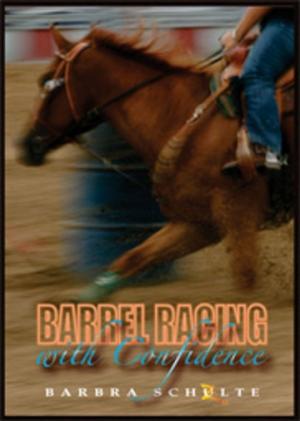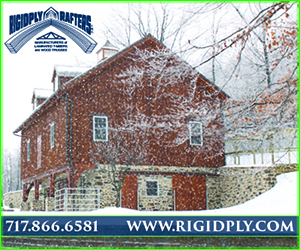By Nancy Brannon
Renowned cutting horse trainer and clinician Barbara Schulte brought her horsemanship and performance advice to barrel racers at Coyote Run Arena March 12 & 13. The participants ran the barrels; their performances were video-taped; and then they each had discussion and evaluation time with Barbara.
“It’s all about improving yourself, your connection with your horse, and enjoying what you’re doing,” is her basic philosophy. “The way I get results is by doing my job. Don’t worry so much about a barrel down, or what other people think. Success is about whether or not you did want you set out to do. It’s all inside you – it’s not about them. It’s training how you think. It’s constantly improving,” she advised. She frequently encouraged riders to take out the work “try” in their remarks, and simply say “I did,” rather than “I tried to do.”
Barbara began by asking each rider to “tell me about your plan.” Each clinic participant then talked about how they warmed up, how they prepared their horses, and how they planned their rides. Barbara emphasized various techniques to “help your horses by giving them a way to redirect their energies” when they are “hot” or tense prior to coming into the arena. These include walking quietly, working on circles, bending lines, figure eights, etc. Participants explained how they got their horses to relax and the rituals they perform before their runs.
She believes riders should “Talk to yourself about feeling good (about your job or performance). You don’t owe other people. The goal is to feel good about your ride, not to feel bad, even if you hit a barrel.”
So how is that done? “Practice feeling secure on the inside with your skills. And these are skills you are practicing,” she said, referring to barrel racing. “When you get confident in that – it’s who you are and what you do – no one can take that away from you.”
Her tips for performance success are: “Practice visualization. Put whatever you want in your visualization. Then tell yourself ‘I feel good.’ Preparation of your horse, engagement of the horse, and feeling positive about yourself” are all part of “building positive feelings and confidence (mental skills)” to bring success to your riding. “Get a plan! Before you ever go to a show, prepare, manage what’s going on. Plan thoroughly and have confidence. Then if a monkey wrench gets thrown in, you have the ability to focus and solve the problem. Let go of old patterns and distractions. Then after the event, evaluate your plan and see how to improve. Everyone has their roles at a show. Give children responsibilities and allow them to experience the outcome (of their decisions) without judgment. This allows them to learn to make good decisions.” One of the participants agreed with her adage: Prior Planning Prevents Poor Performance.
So many barrel racing horses get antsy, tense, and can blow up at the entrance to the arena. Barbara continued her advice about planning carefully every ride. “What is your intention when you come into the arena? Don’t pressure yourself. Decide what you want to do. Be confident. Let the tension and stress go. Focus on things you can control. And keep building a sense of calmness, focus. Keep to your program; take it one step at a time; and any time you feel tense – breathe! Work on your mental skills, which are connected to your body. You can’t ride you best without them! And, most of all, have fun in what you’re doing!”
As the participants talked about their pre-run rituals, Barbara again emphasized staying calm and keeping to the plan. “The most important time to never give up is the time just before you go into the arena. Your ritual is you acting and thinking skills in combination. Your last ritual should only take 3 to 4 seconds, but it is so powerful that it’s what gets you there. At the in gate, feel the horse calm, focused, and ready.” Then plan where you are going in the arena. “The horse follows the rider’s eyes, head and neck. So find your spot, and the horse will follow you to it.”
Her horsemanship skills apply not just to barrel racing, but to any equestrian discipline – and to life in general. “In any equestrian sport,” she said, “The difference between the inexperienced rider and the best professional is the ability to adjust moment to moment. You don’t mind (or get upset and give up) if every step doesn’t go perfectly. It’s no problem! Just focus and readjust for the next step. Be able to adjust to an error!”
Barbara summarized her philosophy for performance success: “When a rider can achieve a positive state of emotion: being calm, confident, focused, and having fun! Because of the connection between mind, body, and emotion, you can ride at your very best physical level. My coaching is about helping people connect their mind, body, and emotions. I give them concrete tools to do that. Mental tools are: visualization; talking to oneself (in positive ways); letting go of errors with no problem. Physical and acting tools include: good posture, a look of confidence – chin up, shoulders back; breathing; and controlling your eyes, where you look.”










